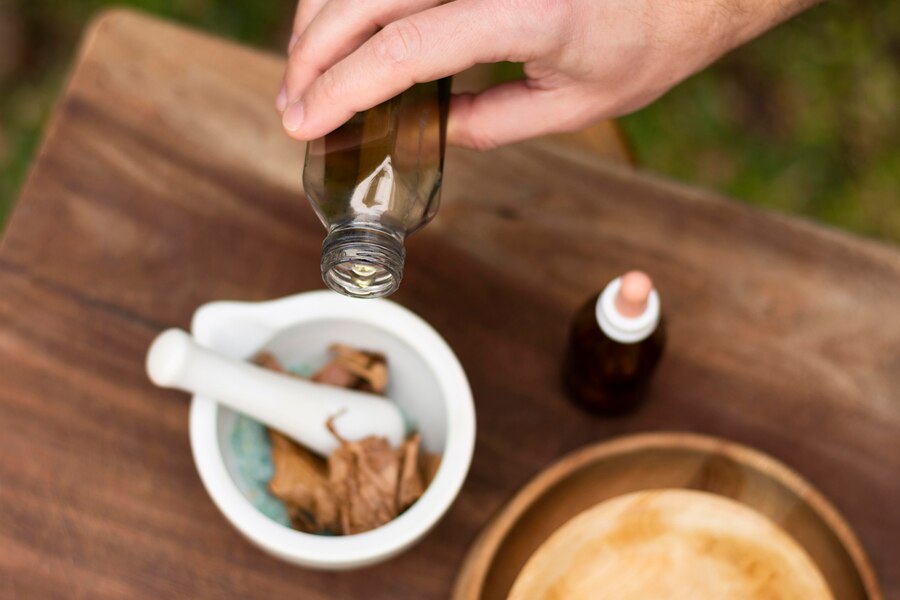Introduction
Stress and anxiety have become common struggles in modern society. From work pressures to personal responsibilities, many factors contribute to these mental health challenges. While conventional medicine offers pharmaceutical solutions, natural remedies provide a holistic approach to reducing stress and anxiety. These remedies not only help calm the mind but also promote overall well-being. In this article, we’ll explore some of the most effective natural methods to manage stress and anxiety.
The Role of an Alternative Medicine Practitioner in Stress Relief
An alternative medicine practitioner specializes in holistic healing techniques that focus on the root cause of stress rather than just treating the symptoms. Unlike conventional medicine, which often relies on prescription drugs, alternative therapies emphasize natural remedies such as herbal medicine, acupuncture, meditation, and aromatherapy. These practitioners help individuals create personalized wellness plans to achieve balance in both body and mind.
1. Herbal Remedies for Stress and Anxiety
Herbal medicine has been used for centuries to promote relaxation and mental clarity. Some of the most effective herbs for stress and anxiety include:
- Ashwagandha – An adaptogenic herb that helps regulate cortisol levels, the hormone responsible for stress.
- Chamomile – Known for its calming properties, chamomile tea is a great natural relaxant.
- Lavender – Often used in aromatherapy, lavender essential oil helps reduce anxiety and improve sleep quality.
- Valerian Root – A natural sedative that promotes relaxation and eases insomnia.
- Lemon Balm – A mild calming herb that can help reduce nervous tension.
Incorporating these herbs into daily routines can significantly reduce anxiety levels and improve overall mental well-being.
2. The Power of Meditation and Mindfulness
Meditation is one of the most effective natural remedies for stress and anxiety. Practicing mindfulness allows individuals to focus on the present moment, reducing overthinking and worry. Benefits of meditation include:
- Lower cortisol levels
- Improved emotional regulation
- Enhanced concentration and focus
- Better sleep quality
Simple meditation techniques such as deep breathing, guided meditation, and body scan exercises can help individuals manage daily stress more effectively.
3. Aromatherapy for Relaxation
Aromatherapy is another powerful natural remedy for stress and anxiety. Essential oils derived from plants contain therapeutic properties that can help calm the nervous system. Some of the best essential oils for stress relief include:
- Lavender – Promotes relaxation and reduces anxiety
- Bergamot – Uplifts mood and reduces stress
- Ylang Ylang – Helps lower blood pressure and induces a sense of calm
- Frankincense – Enhances emotional balance and reduces negative thoughts
Using a diffuser, applying diluted oils to the skin, or adding essential oils to a warm bath can create a soothing atmosphere that promotes relaxation.
4. Exercise and Its Impact on Mental Health
Physical activity plays a crucial role in stress management. Regular exercise releases endorphins, which are known as “feel-good” hormones. Engaging in activities such as yoga, walking, swimming, or strength training can:
- Reduce cortisol levels
- Improve mood and energy levels
- Enhance overall mental resilience
Yoga, in particular, is a mind-body practice that combines movement, breathing, and meditation. Studies have shown that yoga can significantly decrease symptoms of anxiety and depression.
5. How an Alternative Medicine Practitioner Can Help
An alternative medicine practitioner can guide individuals in choosing the most suitable natural remedies for stress and anxiety. They assess each person's unique needs and recommend holistic treatments such as herbal therapy, acupuncture, Reiki healing, and lifestyle modifications. These practitioners take a personalized approach, ensuring that the chosen remedies align with an individual’s physical, emotional, and mental well-being.
6. Diet and Nutrition for Stress Reduction
What we eat has a direct impact on our mental health. A well-balanced diet rich in nutrients can help combat stress naturally. Foods that support mental well-being include:
- Omega-3 fatty acids (found in salmon, flaxseeds, and walnuts) – Help reduce inflammation and support brain function.
- Magnesium-rich foods (such as leafy greens, nuts, and dark chocolate) – Help relax muscles and reduce anxiety.
- Probiotics (found in yogurt, kefir, and fermented foods) – Improve gut health, which is linked to mental well-being.
- B vitamins (present in whole grains, eggs, and legumes) – Support the nervous system and reduce stress.
Avoiding processed foods, caffeine, and excessive sugar can also contribute to a more balanced mood and reduced anxiety levels.
7. The Importance of Quality Sleep
Lack of sleep can significantly contribute to stress and anxiety. Establishing a healthy sleep routine is crucial for mental well-being. Some natural sleep remedies include:
- Drinking chamomile tea before bed
- Using lavender essential oil on pillows
- Practicing a relaxing bedtime routine (reading, meditation, or deep breathing)
- Reducing screen time before bedtime
Quality sleep helps regulate emotions and enhances the body’s ability to handle stress effectively.
Conclusion
Managing stress and anxiety naturally is possible through holistic approaches that address the mind and body. By incorporating herbal remedies, meditation, aromatherapy, exercise, a healthy diet, and quality sleep, individuals can experience long-term relief. Seeking guidance from an alternative medicine practitioner can further enhance the effectiveness of these natural treatments. Prioritizing self-care and embracing these holistic methods can lead to a calmer, healthier, and more balanced life.





Comments